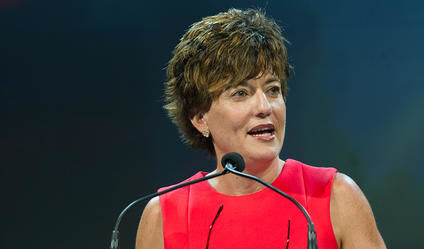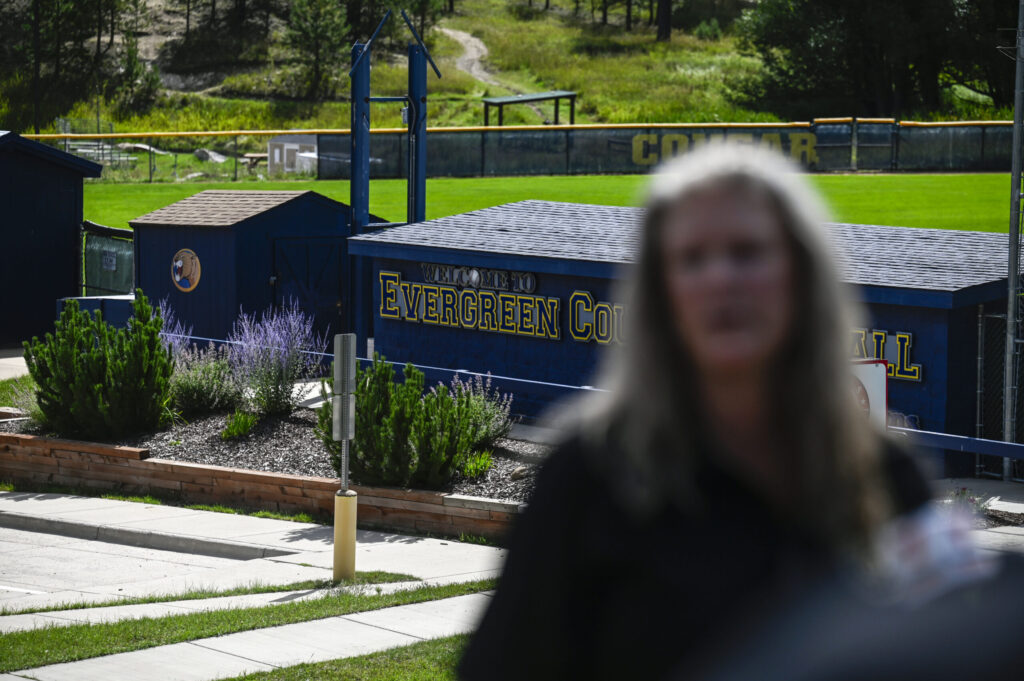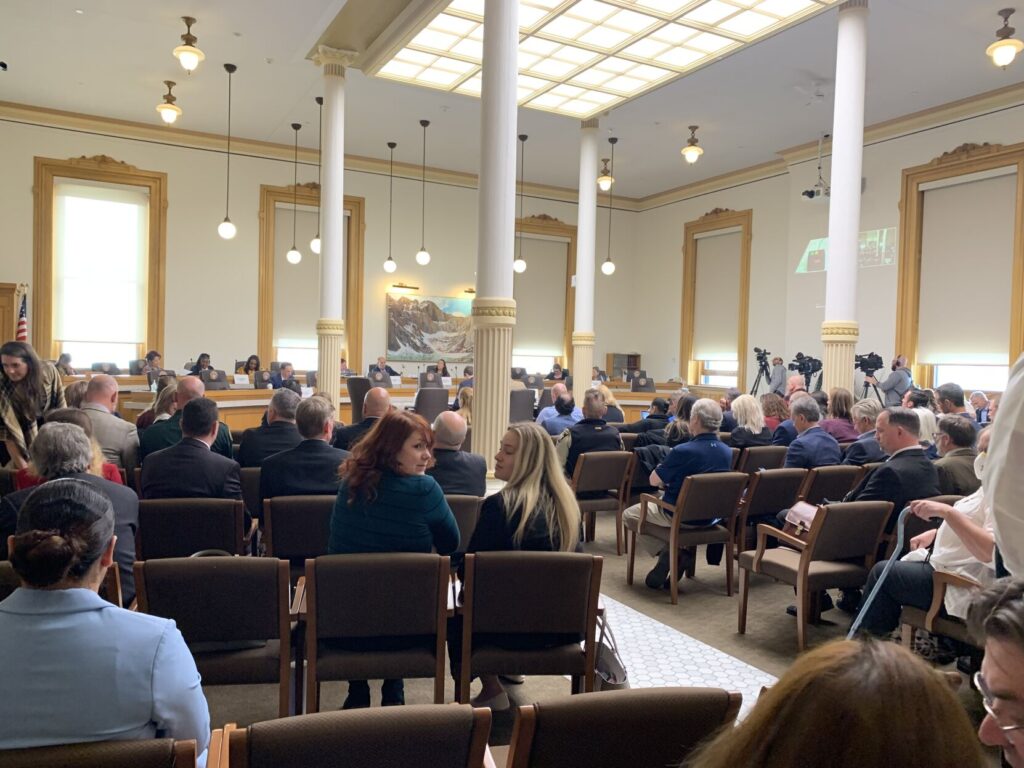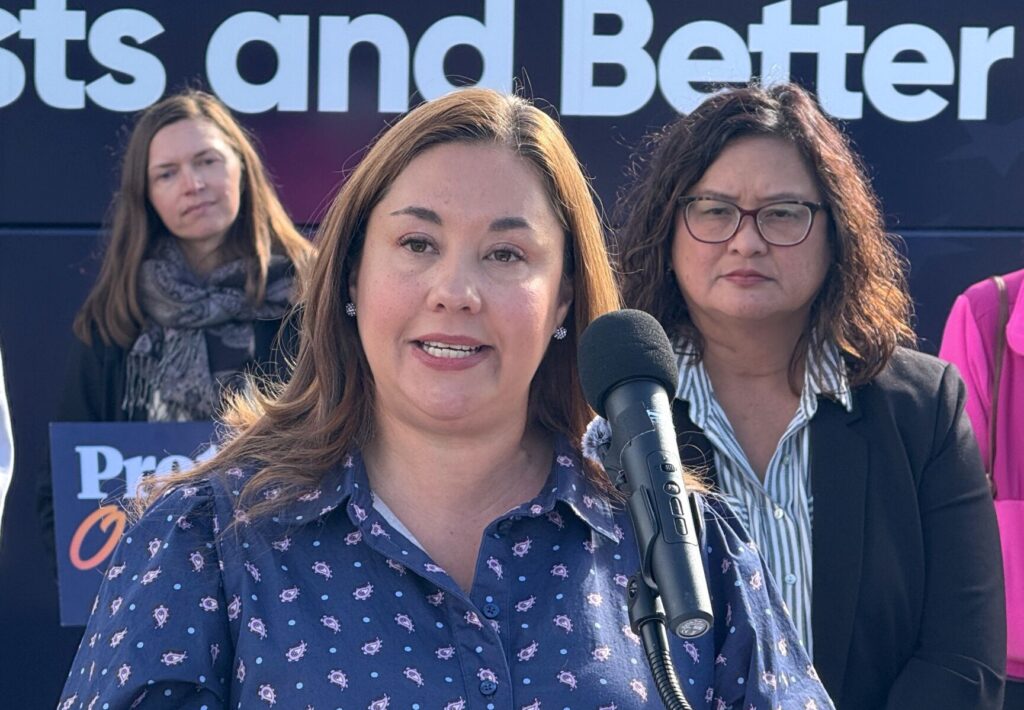Denver Metro Chamber of Commerce looks ahead after tough year at statehouse

It’s been a tough year for the Metro Denver Chamber of Commerce, at least at the State Capitol, where many of its legislative priorities ran aground.
The chamber held its annual membership meeting, drawing more than 1,000 to a luncheon on Friday the Grand Hyatt at the Colorado Convention Center. Chamber President and CEO Kelly Brough began by welcoming members and celebrating successes.
Among the wins in the past year: seeing Denver ranked as the best place in the nation for business, according to Forbes magazine and other national publications and organizations.
“We’re in control of our destiny,” Brough told the audience of civic leaders, legislators, business titans and others. Among the organization’s concrete achievements: the chamber’s Small Business Development affiliate helped 48 new businesses launch and its Economic Development affiliate worked for 16 relocations and expansions. The Denver economy, she said, is thriving.
And even at the State Capitol there were successes, including bills on workforce development, education reform and fiscal transparency, Brough noted.
In many ways, the past year amounted to building foundations and persevering through a tough legislative session, immediate past chamber board chair Bob Deibel told the audience.
“This chamber has big ideas to protect and grow Colorado’s future,” he said, adding that the Chamber focused on five key issues at the statehouse: transportation, water, energy, education and engaging independent voters.
Incoming Board Chair Bob Hottman said the next year will see the chamber playing more offense and looking for long-term wins on topics such as infrastructure, health and wellness, and education. Hottman also encouraged Denver voters to support several municipal ballot measures: the extension of a tourism tax to fund a massive expansion of the National Western Complex, an amendment to the intergovernmental agreement between Denver and Adams County to allow for development around Denver International Airport, and the college-affordability measure. Statewide, the chamber supports the ballot measure allowing the state to retain marijuana taxes. The chamber opposes a tax-increment financing ballot measure in Wheat Ridge, Hottman added, saying it would harm redevelopment efforts.
“We show up to defend what’s best for our state. We’re tireless in our effort to find the best solutions for Colorado,” Brough said. “We are as bold as we have ever been.”
But the construction-defects problem remains unresolved, and several speakers said that’s why they’re calling this past legislative session a tough one.
Resolving the problem is a top priority for the chamber and for the affordable-housing community, Brough told The Colorado Statesman, since condominiums aren’t being built because of the current construction-defects law. “You can provide all the tax breaks you want, but nobody has anything to buy,” she said.
But affordable housing is a bigger issue than can be addressed by simply rewriting the construction-defects law, said House Speaker Pro Tem Dan Pabon, D-Denver. What’s needed, he said, is a discussion of the larger vision for Denver and the state.
“There’s no silver bullet that will fix [the problem] overnight,” he told The Statesman. “That’s what we’re trying to do with the House, Senate and chamber: step back and look at the vision for the next five or 10 years, and how do we get there.” Pabon added that he believes the fix outlined in the last session was one-sided in favor of builders.
Senate Majority Leader Mark Scheffel, R-Parker, said that discussions around construction-defects legislation are ongoing and he’s pleased that Speaker of the House Dickey Lee Hullinghorst, D-Gunbarrel, has recently reached out to him to negotiate a solution. Every session begins anew, he said, adding, “I continue to hear the passionate message of the business community and stakeholders that we’re not done.”
Another bill the chamber supported but that failed to make it into law would have allowed unaffliated voters to vote in primary elections. That legislation will be back next year, chamber officials and legislative leaders said.
Ned “Nedly” Minor, who has volunteered with the chamber for 30 years, including a term as board chair, received the Del Hock Lifetime Achievement Award at the luncheon. The chamber also celebrated four “Champions” from the past year: Lakewood Mayor Bob Murphy, who was part of a coalition supporting construction-defects legislation; John Beeble of Saunders Construction, a past board chair and longtime volunteer; Lori Rabinowiz of Rebound Solutions, who worked with the chamber’s Leadership Foundation; and Dale Clack, a consultant with the chamber’s Small Business Development Center.















